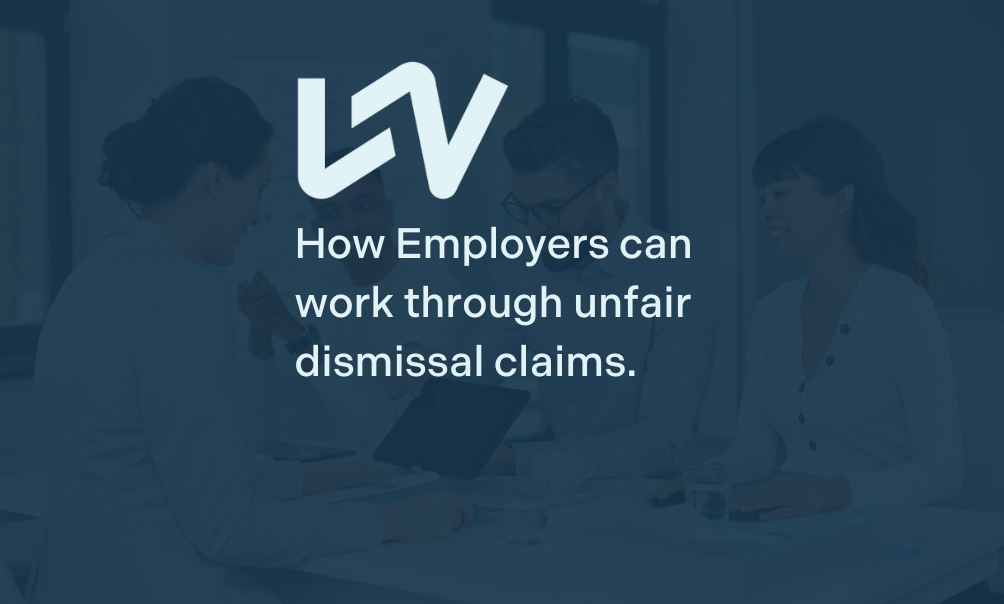
Receiving an unfair dismissal claim can be jolting, even if you’ve experienced multiple unfair dismissal claims in the past. That’s because unfair dismissals will often feel like quite a personal attack on you, from an employee you once cared for, and wanted the best for.
Reading an ex-employee’s unfair dismissal claim, you’ll certainly notice how personal the issue is for them, too. You’re not going to agree with their views, that’s almost guaranteed, but you also need to take a step back and read the claims being made with a logical eye, to be able to respond in your best interests.
The first thing to do, is visit the Fair Work Act., and not to overwhelm you, sections 385, 386 and 387 will be the place to start. There is more to it than just these sections, but, read these sections first, before you read the details of the claim against you. Doing so will help you to understand what in the claim you can simply ignore (or is irrelevant), and which parts you want to respond to.
Now, you can go ahead and read the unfair dismissal claim form submitted by your ex-employee.
You’ve got seven (7) days to respond to the unfair dismissal claim, and you’ll need to do that by using the Form F3 (Employer response form) – Click HERE to see the form.
There are a few things to be aware of, such as whether you may have the ability to make a jurisdictional objection. If you do have grounds, then you need to provide these in your response as this can stop the unfair dismissal claim from progressing too much further.
Jurisdictional objections are reasons you may be able to demonstrate, as to why the ex-employee is not eligible to make an application for an unfair dismissal claim, against you. It’s important to note, an objection is not simply that you think that the dismissal was fair, you’ll have to demonstrate that if that’s your position.
The more common types of jurisdictional objections include:
Now, you’ve received the claim, provided your response, and unless you’ve claimed to have reasons to make a jurisdictional objection (in which case you’ll be required to attend a phone-based hearing), you’re now going to be invited to attend a conciliation for the unfair dismissal matter.
Here is where you’ll get the chance to settle the claim – the aim of this conciliation really is to stop the claim progressing to the Commission and being assigned to a Commissioner, if that is a reasonable outcome that could be reached.
Typically, that means you’ll be asked to pay money to the ex-employee to put this unfair dismissal allegation to bed.
You really should consider all factors here, including:
Click below to listen/watch The HR Cartel Podcast Episode 032 – on dealing with Unfair Dismissal Claims, where we discuss this issue further.
If we’re here, at a hearing for the unfair dismissal claim, that means you decided not to settle the dispute financially and defend the claim- in front of a Commissioner.
If you’ve done the preparation correctly, you’ll now understand the reasons we discussed the need to consider settling at the conciliation stage – the cost (if you sought help), or the time you’ve now committed to this issue has become quite high.
What you should expect to happen first on the day, is a request by the Commissioner that you and the ex-employee consider one last time to settle the dispute with a settlement payment – and you’ll be asked to make an offer.
You’re not obliged to make an offer, but the point to take away here, is that even right up to the very last minute before the hearing, you can settle the matter, or the ex-employee can withdraw the application, so keep that in your mind as you work through to your hearing date.
If you still decide to proceed, the rest is up to you. You may win, meaning the matter is dismissed, but you’ll never win back the time and money it has cost you to get here, unless there are some extreme circumstances where the ex-employee has acted “vexatiously”.
The Fair Work Commission does have the power in some circumstances, to hear and award a “cost application”, which means you can have some money awarded to you to compensate your loss due to the cost of defending a claim which was vexatious, or never had any chance of success.
That’s rare – don’t expect you can run this path and win, but depending on the situation, you may have this option.
You won’t hear the Commissioner’s decision on the day. They’ll take the matter away and decide how to rule based on the arguments made. They’ll write a decision, which will be a publicly published document about you, the ex-employee, the claims made, your actions, and the reasons why a decision was made.
This is another reason employers may decide to settle the matter financially rather than go to a hearing, having the details of the case publicly available for industry journalists, bloggers, and law firms to write about.
These decisions do land in national publications, online, and in other arguments used as case law – so be aware that your case may become popular, including the messy details of whatever occurred.
Click below to watch/listen to The HR Cartel Podcast Episode 032, where we explore the unfair dismissal claim and surrounding matters in more detail.

